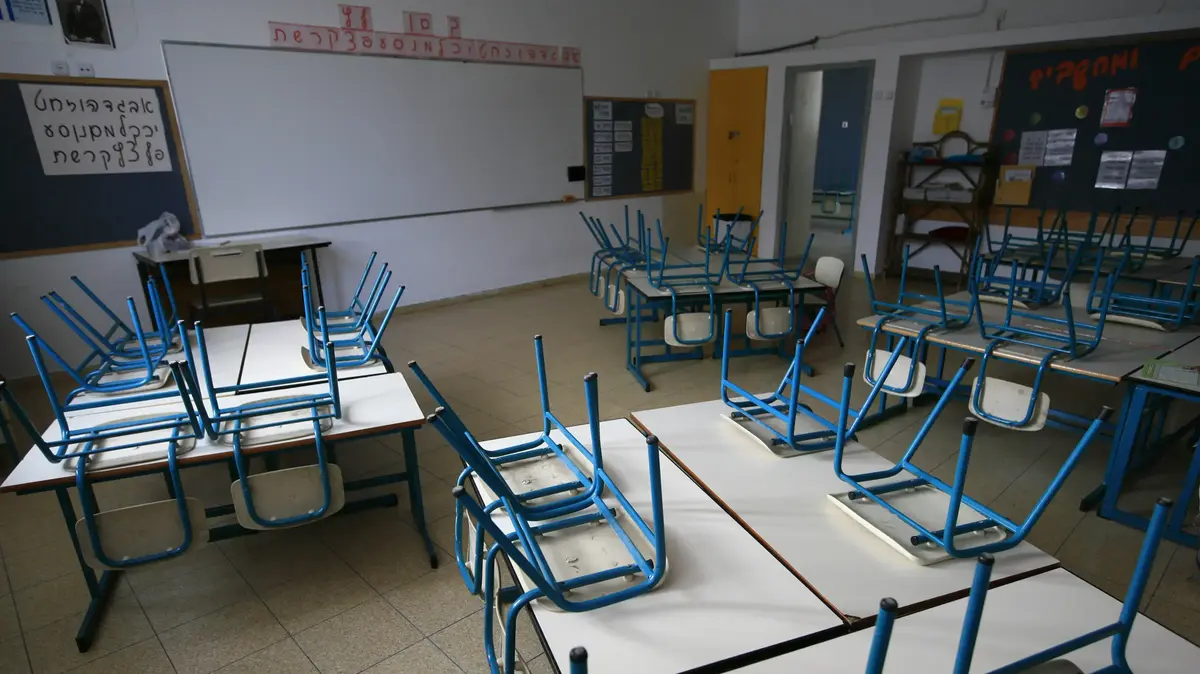The daily schedule of a child, from the age of four, consists of getting up, having breakfast, going to school, eating, attending extracurricular classes, having a snack, doing homework, having dinner and going to bed.
All structured.
There is almost no time for improvisation or free play.
"Children are victims of that structure that adults need," explains child and adolescent psychologist Jonatan Molina Torres.
And, at the weekend, the families' agendas are still full of events and activities.
Something that intensifies at times like Christmas, when parents synchronize their vacations with those of their children and look for plans and things to do to fill the hours of the day.
Rosa Montero wrote in her column in
El País Semanal
last Sunday, November 27, about the need to always be doing something.
"We don't give ourselves a moment's respite," she said.
And that is the feeling of many families.
Especially during the Christmas holidays.
Eighteen days without school that need to be filled with family activities that, on many occasions, are marked by what other parents recommend in WhatsApp groups or what we see on social networks.
“We have to have self-control in deciding what experiences we might like.
If we continually subject minors to this exposure, we create something that can harm them”, clarifies Alicia Banderas, psychologist and author of the book
Overstimulated
Children, How
calmly educate them
and protect them from the dangers that technologies hide
(Timun Mas, 2017).
More information
The rule of four toys and other strategies for choosing Christmas gifts with children
But where is the line that separates excessive leisure from moderate leisure?
“When your son tells you: 'And tomorrow, what?', we've already gone too far.
The experience has a very short life if it is only nourished by quantity and not quality”, explains Banderas.
Such an amount of activities in a short time can lead to overstimulation, which leads to exposing them to more activities than they can handle.
"The problem is not stimulating, but where is that limit that separates stimulation from overstimulation", adds the psychologist Jonatan Molina.
The leisure algorithm
More and more information and leisure activities are being sought through social networks, although Banderas qualifies that information should not be blamed for overstimulation: "Thanks to it we have improved a lot."
She tries to make the families who come to her office see the consequences of FOMO, an acronym for the English expression
Fear Of Missing Out (
fear of missing something, in Spanish).
“When you explain to them that they are experiencing that stress, that anxiety because they are missing something or that decrease in creativity if they are only structured experiences, they begin to change it,” she adds.
Communication experts consider that although more entertainment is consumed through what we see on the networks, overstimulation is not just the fault of the algorithm —the set of programming rules that will cause a publication to be displayed a lot or, instead , the platform hardly shows it to any user.
“A deeper reflection is needed on what type of leisure we want for our children.
What concept do we have of free time”, says the expert in social networks and digital
marketing
María Lázaro Ávila.
But what is certain is that we are getting more and more information through social networks.
According to the
Digital News Report study,
published by the Reuters Institute last June, the consumption of news through television and radio has declined for another year to the detriment of these platforms.
The algorithm in social networks, explains Patricia Chica, from the communication agency specialized in cultural services Culturina Comunicación, are internal parameters that mark the operation of each profile with activity on its platform: "In other words, as we interact, it will show us preferences .
And we check it every day when we review our profiles.”
For this reason, Lázaro warns: “If we are looking for information we must think about why we are looking for it.
Let it not be the information that plans our lives”.
Free play and quality leisure
Free play is necessary for the development of minors.
Activate creativity, your problem-solving capacity and your tolerance for frustration.
"But if they are not allowed to experiment, if we give them everything so done and so often, we kill the desire to invent," explains Lorena Oliver, an Early Childhood Education teacher at a public school in Alicante.
“From the classroom we also try to teach that during the Christmas holidays the best gift we can dedicate to our children is time with them and not activity by activity”, she adds.
Psychologists recommend using a critical sense when choosing what to do with minors during these holidays.
Let them experiment with free play.
Let them get bored
Let there be no pressure.
"Spend more quality time and with stimuli that favor the development of a positive affective relationship between parents and children," Molina emphasizes.
Enjoy family time together.
Find activities or games where they can participate.
“Children remember experiences when they are participants, not when they are mere spectators,” adds Banderas.
You can follow Mamas & Papas on
,
or sign up here to receive
our biweekly newsletter
.

/cloudfront-eu-central-1.images.arcpublishing.com/prisa/U3YVJNNRNOHR5RDSQR7DHZRLNA.jpg)






